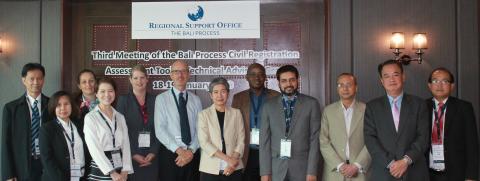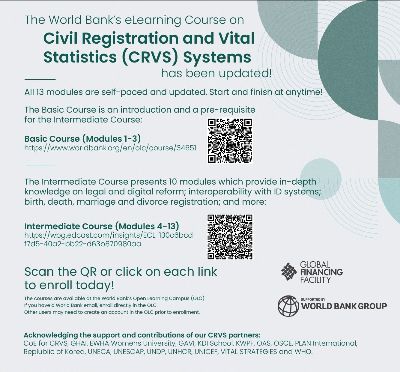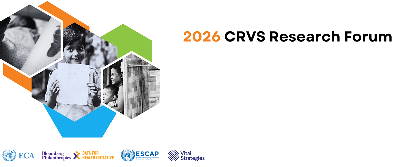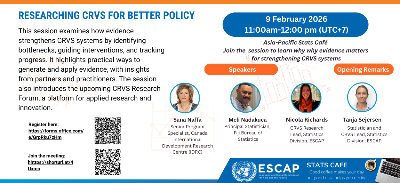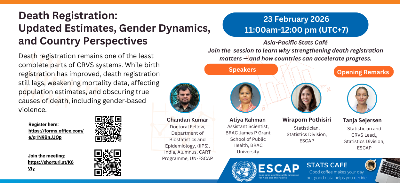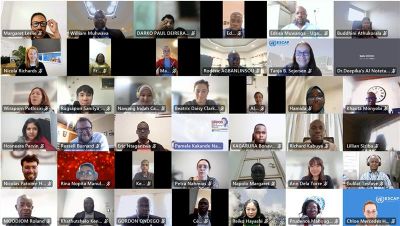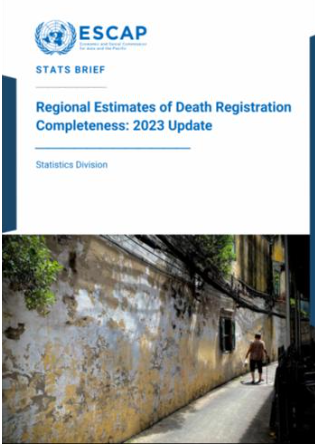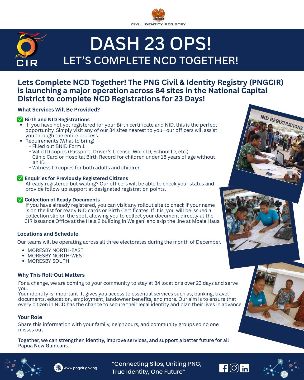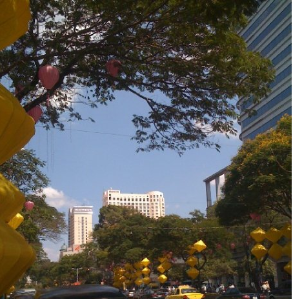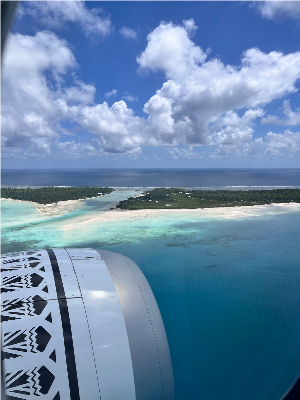On the 18th and 19th of January 2018 the third meeting of the Bali Process Civil Registration Assessment Toolkit Technical Advisory Group took place in Bangkok. The purpose of the meeting was first, to undertake a technical review of the toolkit and secondly, to elaborate a program for the piloting of a part of the toolkit methodology within the Civil Registration administration of a Bali Process Member State.
The purpose of the Toolkit is to help States improve how they register births, deaths and marriages of key populations (refugees, asylum seekers, stateless persons and persons of undetermined nationality) that occur on their territory. The overall goal of the Toolkit is to enable better protection and contribute to durable solutions for key populations by increasing levels of civil registration and documentation completeness among these population groups. The toolkit will contain a practical assessment methodology for States to identify gaps and barriers, as well as relevant technical and policy guidance based on international standards, recommendations and good practices, to support improvement efforts. The toolkit is expected to be published in the second half of 2018, and will include a pilot in one or more States in 2018.
The technical advisory group has been established to review technical and policy aspects of the civil registration among key populations, in order to inform and oversee the development of the toolkit to ensure that it is relevant and actionable by Bali Process member states.
The Regional Support Office (RSO) of the Bali Process on People Smuggling, Trafficking in Persons and Related Transnational Crime was established in 2012 to facilitate the work of the Regional Cooperation Framework that was endorsed by the Fourth Bali Process Regional Ministerial Conference in March 2011. The RSO aims to support and strengthen practical cooperation on refugee protection and international migration, including human trafficking and smuggling, border management, and other components of migration management in Asia and the Pacific.


